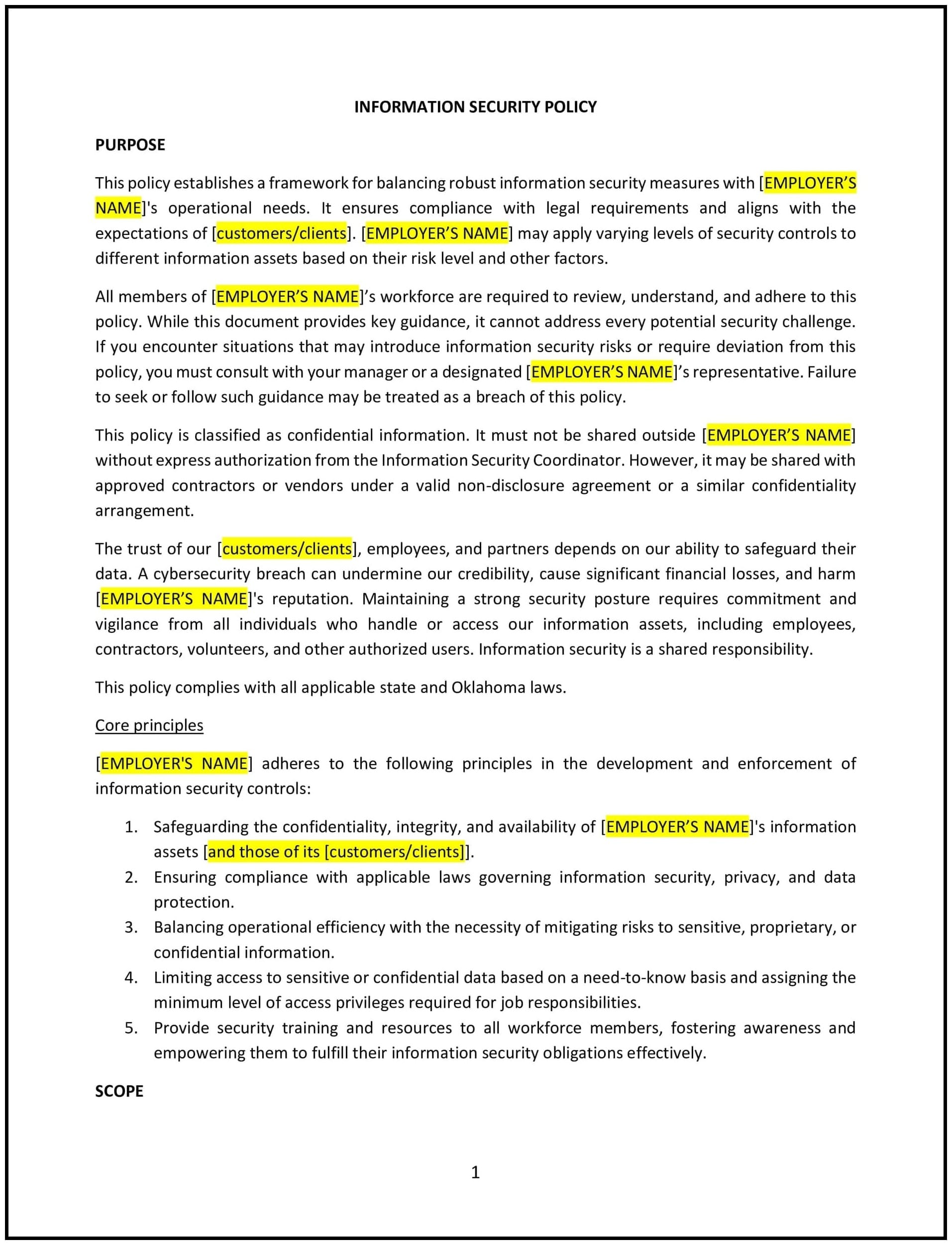Information security policy (Oklahoma): Free template
Got contracts to review? While you're here for policies, let Cobrief make contract review effortless—start your free review now.

Customize this template for free
Information security policy (Oklahoma)
This information security policy is designed to help Oklahoma businesses protect sensitive data, prevent cyber threats, and establish clear guidelines for handling company information. The policy outlines security measures, employee responsibilities, and risk management protocols to safeguard digital and physical information assets.
By implementing this policy, businesses can reduce the occurrences of data breaches and risk of reportable breaches, enhance cybersecurity practices, and maintain customer trust.
How to use this information security policy (Oklahoma)
- Define security responsibilities: Assign roles for data protection, IT security, and risk management.
- Establish access controls: Limit access to sensitive information based on employee roles and responsibilities.
- Require strong authentication: Implement multi-factor authentication (MFA) and secure password policies.
- Outline data encryption standards: Ensure confidential data is encrypted in transit and at rest.
- Set device and network security guidelines: Require secure configurations for company-owned and personal devices used for work.
- Provide phishing and cybersecurity training: Educate employees on identifying and preventing cyber threats.
- Implement incident response procedures: Establish protocols for reporting and mitigating security breaches.
- Review regularly: Update security policies periodically to align with evolving cybersecurity threats and compliance requirements.
Benefits of using this information security policy (Oklahoma)
Implementing this policy provides several advantages for Oklahoma businesses:
- Protects sensitive data: Reduces the risk of unauthorized access, data breaches, and cyberattacks.
- Enhances cybersecurity: Establishes best practices for securing company networks and digital assets.
- Supports regulatory compliance: Helps businesses align with Oklahoma and federal data protection laws.
- Reduces financial risks: Minimizes potential fines, legal liabilities, and operational disruptions from security incidents.
- Builds customer and partner trust: Demonstrates a commitment to safeguarding information.
Tips for using this information security policy (Oklahoma)
- Train employees regularly: Ensure staff understands cybersecurity best practices and threat awareness.
- Restrict data access: Use role-based access controls to prevent unauthorized information exposure.
- Monitor for security threats: Implement real-time monitoring and threat detection tools.
- Back up data securely: Store backups in encrypted, off-site locations to prevent data loss.
- Adjust as needed: Update security protocols based on emerging threats and business requirements.